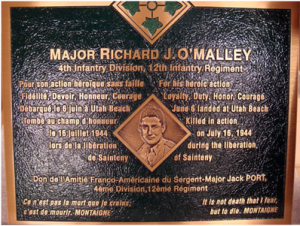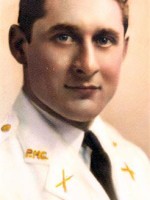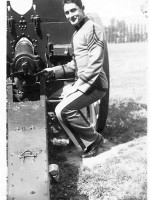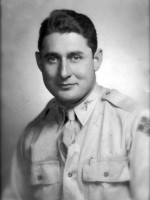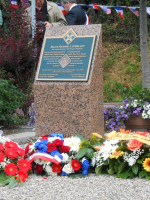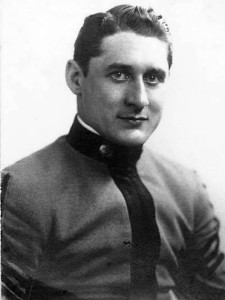 After graduating PMC, Richard O’Malley, ’38, entered the Graduate School of Business at Harvard. The approaching war, however, changed his plans and he entered the military in 1940. He became the commander of H Company, 2nd Battalion, 12th Infantry Regiment, one of the oldest and most decorated regiments in the Army, and deployed to England with the 4th Infantry Division.
After graduating PMC, Richard O’Malley, ’38, entered the Graduate School of Business at Harvard. The approaching war, however, changed his plans and he entered the military in 1940. He became the commander of H Company, 2nd Battalion, 12th Infantry Regiment, one of the oldest and most decorated regiments in the Army, and deployed to England with the 4th Infantry Division.
On D-Day, he saw his first action of the war when the 12th Regiment spearheaded the invasion of the Cherbourg Peninsula. The 12th Infantry landed south of the beaches Uncle Red and Tara Green. Despite being widely dispersed, the Regiment was quickly reassembled, organized and advanced inland. As the 2nd Battalion moved inland, it became engaged in a fierce firefight at Neuville-au-Plain. When the Battalion commander became a casualty, O’Malley assumed command and proceeded to the front lines. There he could be heard calling “Up and at “em, 2nd Battalion, follow me!” The next objective of the 2nd Battalion was 2 enemy pillboxes near two stone quarries. O’Malley lead a fierce attack and in conjunction tanks, overcame the enemy. After the capture of the port of Cherbourg on June 26, the 12t Infantry was repositioned to the Sainteny front.
O’Malley’s then became engaged in fierce fighting against Götz von Berlichingen Division’s SS grenadiers, supported by the parachutists of the 6th Regiment. These elite enemy forces were entrenched in the hedgerows of the Normandy countryside. Although wounded twice, Major O’Malley continued to lead the battalion from a frontline position. Only hours before the Battalion was to be relieved on July 16, an enemy sniper shot and killed O’Malley. As the men of the 2nd Battalion learned of his death, they were stunned.
Richard O’Malley was a “ruggedly handsome man with a voice that could crack timber,” whose manner was brisk, decisive and authoritative. His fearless leadership and concern for his troops endeared him to his men who called him “The Iron Major.”” When Major General Raymond Barton, Commander of the 4th Infantry Division, learned of the loss of Major O’Malley he was so moved that he ordered the mass firing of three volleys of the 4th Infantry Division artillery and mortars into enemy lines. This was the only time in World War II that this honor was given by the 4th Infantry Division and the only time to this day.”
In 1945, Major O’Malley was posthumously awarded the Silver Star. The citation accompanying the awarded stated:
“After relieving the battalion of another unit, Major O’Malley attacked with his battalion and succeeded in advancing in the face of fierce enemy resistance. Throughout this period, Major O’Malley, although handicapped by a stiff leg resulting from a previous wound, was continuously up forward, directing the attack.
“When his battalion was ordered to take up a defensive position, Major O’Malley continued to remain forward in order to adequately co-ordinate defensive fire. Despite the fact that the enemy front lines were less than 100 yards away, and that his own troops were continually under small arms and artillery fire, he visited each company front personally to check positions.”
